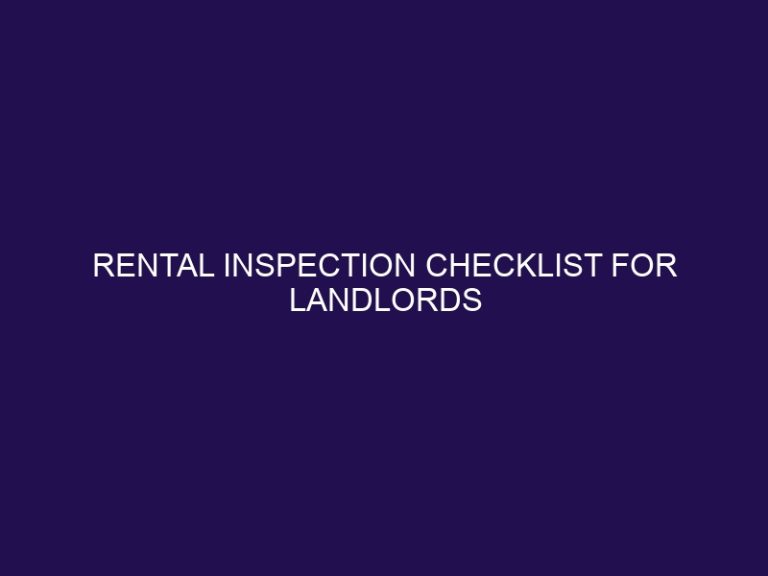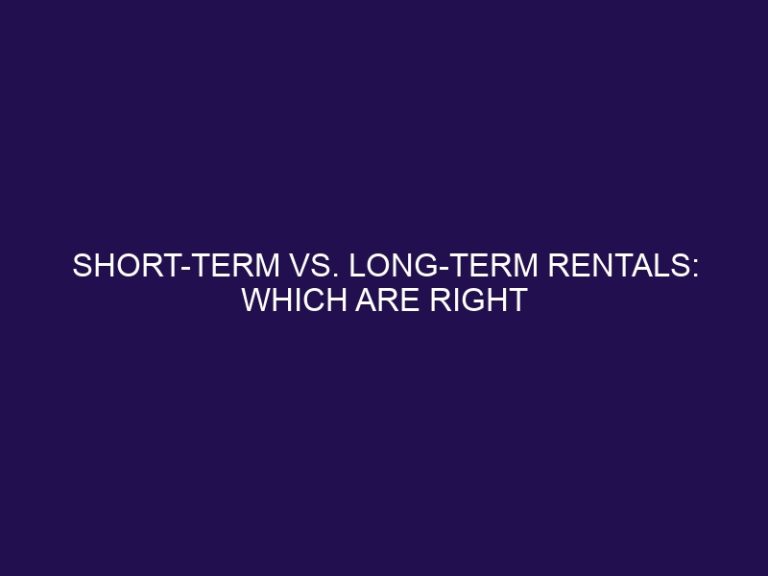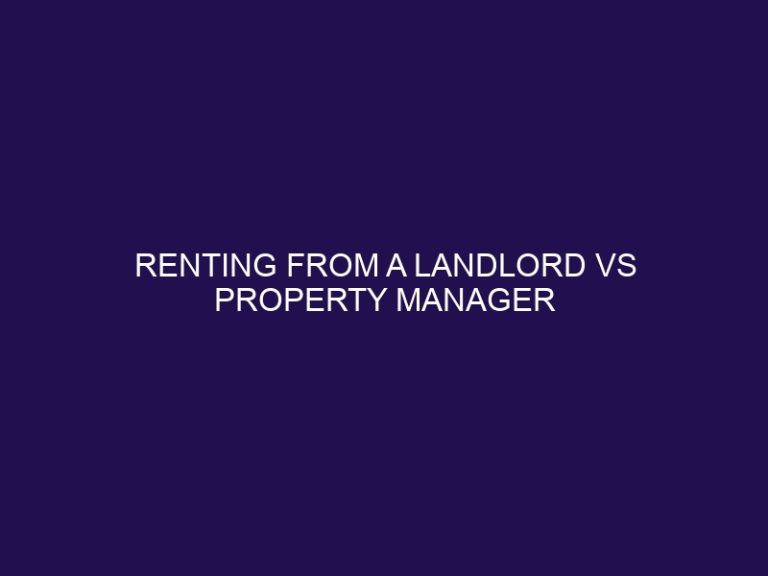Unlocking the Potential: Exploring Commercial Property Management
“Exploring the World of Commercial Property Management”
Welcome to the dynamic world of commercial property management, where the opportunities and challenges are as vast as the properties themselves. In this comprehensive guide, we will delve into the various facets of commercial property management, providing valuable insights and practical tips for both seasoned professionals and newcomers to the field.
From understanding the commercial property landscape to implementing best practices, this article covers everything you need to know to navigate this ever-evolving industry.
First, we will begin by gaining a deep understanding of the commercial property landscape, exploring the diverse types of commercial properties and their investment potential. Whether it’s office buildings, retail spaces, or industrial complexes, each property type comes with its own unique set of opportunities and considerations for successful management and investment.
Next, we will delve into the essentials of getting started in commercial property management, including the pros and cons of commercial property investment. This section will provide valuable insights for those looking to enter the industry or expand their existing portfolio.
Moving on, we will explore best practices in commercial property management, covering crucial topics such as tenant retention and satisfaction strategies, maintenance and upkeep guidelines, financial management and budgeting techniques, as well as the implementation of technological advancements. These best practices form the foundation of successful property management, ensuring the long-term profitability and sustainability of commercial properties.
We will shed light on the pivotal role of a commercial property manager, highlighting the keys to success in commercial property management. From effective lease management and tenant relationships to proactive property maintenance and risk management, we will uncover the strategies and tools that can help property managers excel in their roles.
We will conclude by discussing the importance of embracing technology and innovation, as well as enhancing property performance strategies to stay ahead in the competitive commercial property landscape.
By the end of this article, you will have a comprehensive understanding of commercial property management and be equipped with actionable insights to elevate your property management practices. Whether you are an experienced professional or a newcomer to the industry, this guide is designed to empower you with the knowledge and strategies needed to thrive in the world of commercial property management.
Key Takeaways:
Introduction to Commercial Property Management
Commercial property management involves the oversight, operation, and control of income-generating real estate, encompassing various property types such as retail, office, industrial, multifamily, hospitality, and special purpose properties.
This multifaceted profession requires a comprehensive understanding of real estate laws, market trends, and property maintenance. Property managers handle a wide range of responsibilities, including lease agreements, tenant relations, maintenance coordination, and financial management. Their primary goal is to maximize the property’s value and return on investment for the property owner or investors. Effective property management can lead to increased property appreciation, tenant satisfaction, and increased revenue streams.
Understanding the Commercial Property Landscape
To effectively manage commercial properties, it is crucial to comprehend the dynamic landscape of the real estate market, identifying potential opportunities for investors and staying abreast of industry trends through in-depth market research and analysis.
Commercial property investment has increasingly become an attractive option for investors seeking stable returns and portfolio diversification. Understanding the market dynamics involves analyzing factors such as vacancy rates, supply and demand, and local economic conditions. By conducting thorough market analysis, investors can identify emerging opportunities in diverse sectors such as office spaces, retail centers, and industrial properties.
Keeping a pulse on industry trends helps investors adapt their strategies to changing market conditions. This includes monitoring advancements in technology, sustainability initiatives, and evolving consumer behaviors, all of which influence the demand for commercial properties. With such insights, investors can position themselves to capitalize on emerging niches and capitalize on market inefficiencies for profitable deal-making.
Types of Commercial Properties and Their Investment Potential
Commercial properties encompass a diverse range of real estate assets, each with unique investment potential and tenant dynamics, including retail, office, industrial, multifamily, hospitality, and special purpose properties, offering varied opportunities for income generation and portfolio diversification.
Retail properties, such as shopping centers and standalone stores, attract a wide range of tenants, including retailers, restaurants, and service providers. Office properties, catering to professional services and corporate tenants, offer stable long-term leases, while industrial properties, including warehouses and distribution centers, provide essential space for logistics and manufacturing operations.
Multifamily properties, comprising apartment buildings and condominiums, cater to residential tenants, providing steady rental income and potential for property appreciation. Hospitality properties, such as hotels and resorts, offer income potential through room rentals, events, and amenities. Special purpose properties, including healthcare facilities and educational buildings, can cater to specific tenant needs, often with long-term lease agreements and stable income streams.
Getting Started in Commercial Property Management
Embarking on a career in commercial property management requires a combination of industry knowledge, professional development, and technological acumen, with options for specialized accreditation such as the Certified Commercial Investment Member (CCIM) designation, to excel in this dynamic field.
Aspiring professionals in the commercial property management domain can kickstart their journey by gaining a solid understanding of real estate principles, finance, and market analysis. Familiarity with property management software and technological advancements is essential, as it helps in streamlining operations and maximizing efficiency.
Honing negotiation skills and mastering lease administration are crucial for dealing with diverse tenants and property owners. It’s also beneficial to delve into legal regulations and compliance standards that govern the commercial real estate arena, paving the way for a comprehensive approach to property management.
Pros and Cons of Commercial Property Investment
Investing in commercial properties offers the potential for substantial income streams, tenant stability, and portfolio diversification, yet it also involves considerations such as risk management, lease negotiations, and market volatility, constituting the pros and cons of this rewarding yet challenging investment avenue.
Commercial property investment presents the opportunity for steady cash flow through long-term leases and higher rental yields compared to residential properties, enhancing the income potential for investors. The stability provided by established businesses as tenants can contribute to long-term financial security for property owners. Effective tenant management and lease negotiations are crucial for maintaining occupancy rates and rental income.
On the downside, commercial real estate investment comes with the challenge of mitigating risks associated with economic downturns, market fluctuations, and tenant turnover. Market dynamics and local economic conditions can impact property values and rental demand, necessitating a thorough understanding of these factors to make informed investment decisions.
Best Practices in Commercial Property Management
Effective commercial property management entails implementing best practices across various domains, including tenant relationships, maintenance, financial management, technology adoption, lease and risk management, industry trends, marketing, vendor partnerships, sustainability initiatives, and ongoing professional development.
Successful tenant relations are built on effective communication, timely issue resolution, and maintaining strong rapport. Financial oversight involves budgeting, forecasting, and optimizing operational costs. Technological integration includes leveraging management software and automation tools for streamlined processes.
Risk mitigation strategies prioritize identifying and addressing potential threats to property value and security. Marketing strategies encompass targeted approaches to attract and retain tenants. Sustainable measures involve energy efficiency improvements, waste management, and green certifications. Professional development opportunities enable property managers to stay updated with industry best practices and regulations.
Tenant Retention and Satisfaction Strategies
Implementing robust tenant retention and satisfaction strategies is paramount for commercial property managers, involving proactive tenant engagement, lease negotiation finesse, and the delivery of exceptional value propositions to maintain a high tenant retention rate and foster positive tenant relationships.
Engaging with tenants on a regular basis, understanding their needs, and addressing concerns promptly are essential for building trust and loyalty. Savvy lease negotiation tactics can lead to mutually beneficial agreements that meet both the landlord’s and tenant’s objectives.
Offering value-added services such as regular maintenance, security enhancements, and sustainable amenities can elevate the tenant experience, increasing the likelihood of lease renewals and positive referrals within the network.
Maintenance and Upkeep Guidelines
Establishing comprehensive maintenance and upkeep guidelines is crucial for preserving commercial property assets, encompassing proactive risk management, regular maintenance protocols, and strategic upkeep initiatives to ensure the long-term value and appeal of the properties.
Proactive risk management involves identifying potential hazards and implementing measures to prevent or mitigate them, safeguarding the property from unexpected damages or liabilities. Regular maintenance routines, such as HVAC system checks, plumbing inspections, and structural assessments, help address minor issues before they escalate, extending the lifespan of building components and reducing the need for costly repairs.
Strategic upkeep measures, such as landscaping enhancements, exterior upgrades, and energy-efficient installations, not only enhance the property’s aesthetic appeal but also contribute to its sustainability and market competitiveness, attracting discerning tenants and maximizing returns.
Financial Management and Budgeting Techniques
Effective financial management and budgeting are critical components of successful commercial property management, involving comprehensive revenue analysis, expense optimization, and strategic budgeting techniques to ensure the financial wellbeing and profitability of the managed properties.
By conducting a thorough revenue analysis, property managers can gain valuable insights into the income streams of the commercial properties, allowing them to identify opportunities for revenue growth and assess the overall financial performance.
Implementing expense optimization practices involves exploring cost-efficient solutions for operational expenses, maintenance, and repairs without compromising the property’s quality and tenant satisfaction.
Implementing Technological Advancements
Embracing technological advancements is pivotal for enhancing the efficiency and productivity of commercial property management, involving the implementation of innovative solutions, robust vendor networks, and adept utilization of property management technologies to streamline operations and elevate tenant experiences.
This integration enables property managers to leverage data analytics to gain insights into tenant preferences and behavior, enabling them to personalize services and improve satisfaction levels. Cutting-edge technology also facilitates predictive maintenance, enabling proactive identification and resolution of maintenance issues, thus enhancing the overall maintenance efficiency. Advanced property management platforms offer digitized communication channels and self-service options, revolutionizing the tenant experience and optimizing operational processes.
The Role of a Commercial Property Manager
Commercial property managers play a pivotal role in overseeing property operations, maintaining transparent reporting standards, facilitating effective tenant communication, and ensuring legal compliance, thereby contributing significantly to the overall performance and value creation within the managed properties.
Their responsibilities encompass a wide array of tasks that require a keen understanding of property management principles and attention to detail. From lease administration to budgeting and financial management, commercial property managers actively engage in strategic planning to maximize property performance while ensuring cost-efficiency.
They are instrumental in vendor management, addressing maintenance issues promptly, and coordinating with various service providers to maintain the property’s functionality and appeal.
Commercial property managers play a vital role in upholding stringent reporting standards, ensuring that financial statements, occupancy reports, and property performance analyses are accurate and comprehensive. In addition, they oversee regulatory compliance, keeping abreast of evolving laws and regulations, and implementing necessary protocols to mitigate risks and uphold legal obligations.
Keys to Success in Commercial Property Management
Achieving success in commercial property management hinges on adept management of tenant relationships, continuous property performance enhancement, strategic vendor management, and insightful tenant mix analysis, all of which contribute to the sustained growth and prosperity of the managed properties.
Effective management of tenant relationships is crucial for fostering positive interactions, addressing concerns promptly, and ensuring high occupancy rates. The continuous enhancement of property performance involves regular maintenance, updates to amenities, and adherence to industry standards, thereby attracting and retaining high-quality tenants.
Strategic vendor management entails building reliable partnerships, negotiating cost-effective contracts, and ensuring timely maintenance services, contributing to efficient property operations. Insightful tenant mix analysis involves understanding the target market, diversifying tenant types and amenities to create a balanced and attractive property portfolio.
Effective Lease Management and Tenant Relationships
Efficient lease management and proactive tenant relationship cultivation are pivotal for commercial property managers, encompassing effective lease negotiations, tenant communication, and conflict resolution strategies to foster productive and mutually beneficial relationships with the tenants.
Effective lease negotiations involve thorough understanding of market conditions, lease structures, and tenant requirements, aiming to secure favorable terms while balancing the needs of both parties. Cultivating open and transparent communication with tenants, listening to their concerns, and addressing them promptly is essential for building trust and enhancing the tenant experience. Proactive conflict resolution techniques, such as mediation and compromise, are crucial for maintaining harmonious relationships and minimizing potential disruptions in property operations.
Proactive Property Maintenance and Risk Management
Proactive property maintenance and vigilant risk management practices are imperative for safeguarding the value and integrity of commercial properties, involving regular property inspections, risk mitigation measures, and emergency response preparedness to mitigate potential threats and preserve asset quality.
Implementing a comprehensive property inspection protocol enables property managers to identify maintenance needs and potential hazards, helping in the early detection of structural issues, electrical or plumbing concerns, and other safety risks. This proactive approach minimizes the likelihood of larger, more costly problems down the line.
Moreover, risk mitigation strategies encompass various measures such as implementing security protocols, insurance coverage, and legal compliance to reduce exposure to potential liabilities, ensuring a secure and compliant property environment. These strategies serve as a protective shield against unforeseen incidents and legal ramifications.
Additionally, emergency response preparedness involves the development and communication of emergency plans, ensuring quick and effective responses to natural disasters, security breaches, or other unexpected incidents. Proper training, regular drills, and the availability of essential resources are key components of an efficient emergency response plan.
Embracing Technology and Innovation
Embracing technology and fostering innovation are integral to driving operational efficiency, tenant satisfaction, and property performance within the commercial property management landscape, encompassing the integration of cutting-edge technologies and the establishment of robust vendor networks to optimize property operations and tenant experiences.
By leveraging advanced technologies such as IoT, AI, and machine learning, property managers can gain real-time insights into building operations, predictive maintenance, and energy optimization, leading to cost savings and improved sustainability.
Innovative initiatives like smart building solutions and tenant experience platforms enable property managers to deliver personalized, seamless experiences, enhancing tenant satisfaction and retention.
Enhancing Property Performance Strategies
Implementing targeted property performance enhancement strategies involves meticulous market research, revenue optimization tactics, and strategic budgeting measures to elevate the overall operational and financial performance of commercial properties, ensuring sustained growth and competitive positioning.
This approach requires a deep understanding of the local real estate market dynamics, tenant preferences, and emerging trends. Market research should delve into demographics, economic indicators, and competitive landscape analysis to identify viable opportunities for property value appreciation.
Additionally, revenue optimization involves developing leasing strategies, tenant retention programs, and cost-effective operational practices to maximize income streams while maintaining high tenant satisfaction.
Furthermore, strategic budgeting demands a comprehensive financial plan that aligns operating expenses, capital improvements, and cash flow projections to attain long-term financial stability and growth.
Conclusion and Next Steps in Commercial Property Management
The field of commercial property management presents diverse challenges and opportunities, necessitating proficient management skills, technological acumen, and effective tenant relationships to navigate the dynamic landscape of real estate investment and management, paving the way for sustainable growth and success.
One of the key challenges in commercial property management is the need to stay abreast of constantly evolving regulations and compliance standards, which requires astute attention to detail and a proactive approach to risk management.
Identifying strategic opportunities for property enhancement and leveraging innovative technologies, such as smart building systems and data analytics, is vital for optimizing operational efficiency and tenant satisfaction.
Building and nurturing strong tenant relationships and providing exceptional customer service are paramount in sustaining high occupancy rates and fostering a positive reputation within the market.
In essence, it’s evident that effective commercial property management involves a blend of strategic foresight, operational agility, and a deep understanding of market dynamics, all of which collectively contribute to long-term investment success.
Frequently Asked Questions
What is Commercial Property Management?
Commercial Property Management involves managing and maintaining properties such as office buildings, retail spaces, industrial complexes, and more, on behalf of the property owners.
What are the responsibilities of a Commercial Property Manager?
A Commercial Property Manager is responsible for managing day-to-day operations, maintaining the property, handling tenant relations, overseeing finances and budgeting, and more.
What skills are required to be a successful Commercial Property Manager?
Some key skills for a successful Commercial Property Manager include strong communication and interpersonal skills, organization and time management, financial management, problem-solving, and the ability to handle multiple tasks simultaneously.
What is the role of a Commercial Property Management company?
Commercial Property Management companies provide professional management services to property owners, helping them maximize their property’s value and income potential.
What should I look for when hiring a Commercial Property Management company?
When hiring a Commercial Property Management company, consider their experience and track record, their services and fees, their communication and reporting processes, their understanding of local market trends, and their overall reputation in the industry.
How does a Commercial Property Manager handle tenant relations?
A Commercial Property Manager is responsible for finding and screening potential tenants, handling lease agreements, addressing tenant complaints and concerns, and ensuring that tenants adhere to property rules and regulations.







